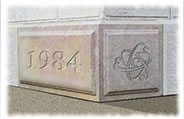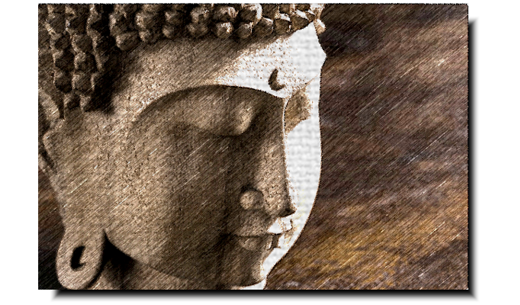Fish and Privilege
The Ethics Series
“A fish examines everything but the water in which it swims.”
— Marshall McLuhan
We simply aren’t fully aware of the privileged life we live in the office. It’s part of the day to day woof and warp which we cruise through without noticing or thinking about it.
Soap? It’s right there by the sink, in the kitchen, in the bathroom. There’s a full bottle to refill the reservoir when needed. Refilled constantly by a dedicated teammate who makes sure we never run out. Then, the paper towels…
Paper. Reams of it… Cases even! Any weight, color or finish…
Business Cards, Letterhead (how little of it we need any more — those tangible representations of our existence and significance).
(Does it unnerve any of you over fifty, who don’t take electronic signatures seriously? I mean, how do you know any of those internet phantoms really exist?)
Batteries, dishwashing detergent, foil, plastic bags, Swiffer sheets, Windex for the electronic screens and keyboards, reference books, training manuals, three ring binders in infinite supply, some with contents, some in-waiting, parking spaces, grounds keepers, light bulb changers, cleaning crews, mobile elevator maintenance teams, delivery services… The massive economy of abundance, which keeps all of us supplied with every conceivable item and service — waiting to prime our creative abilities as we bring forth and contribute our small bit to the greater undertaking, as we service and deliver for our clients and investors…
Are we privileged? You Bet! Are we aware of it? Not likely! Is this harmful? Well, perhaps a better question might be: Can we be more helpful?
Imagine Prince Siddhartha Gautama, in another century, who grew up as the Golden Prince — sheltered and provided for by his father the Great King. Nothing was too small or too insignificant for the Prince, who grew up so comfortable and sheltered that he knew of nothing outside the castle walls. As the story goes, one day he found his way beyond his enclave, and encountered life in the city — in all its variety of wealth and squalor. People living (existing) on the streets. People dying. People making deals. People moving freely about as they chose. People going to school in groups. People rich enough to create their own walled reality, and others for whom reality was an unwanted visitor. Such a shock to one whose privileged perspective was never impinged upon by an outside event…
As you might expect, this cultural shock was enough to unhinge the young prince, who stayed in the countryside, away from his previous life — eventually becoming a sadhu — a renunciant hermit. Seeking the secret to life, to resolving the ever-present suffering, he pursued the other extreme — and denied himself everything. He sat in meditation until one day — it struck him: There is a middle way — to not become lost in desire or attachment, but also to not become lost in denial. The challenge was to find the middle way — to be aware of the extremes, but to make one’s way down the center path of life and stay free of all attachment.
His was a revolutionary path for its time, or for ours. He became known as the Buddha: The Enlightened One. And his teachings, have evolved into a world religion.
But the core philosophy: being aware of the extremes but not carried away with endorsing or denying them — is a continuing exercise in the ethics of the greater good. How can we continue on our path, with greater awareness — and the ongoing interest in assisting others in finding their way to greater awareness, effectiveness and prosperity? Not through denial, nor through obsessive celebration of victimhood, but through straight ahead pursuit of the greater good?
That is the ongoing question. What’s the greater good?
Do we get there by liquidating and sending our entire wealth to Rwanda? Perhaps we should start feeding the homeless people on the streets? Maybe lining up to protest with BLM in our city? Should we finance more safe zones on college campuses? Should we line up and support Common Core to align all schools around a single curriculum?
Or, not…
Maybe we stop feeling insulated, or guilty, and begin by examining the Water in Which We Swim…
Applications
1. For You
Do you live in a suburb? A high rise? Why? Are there parts of your surrounding area which you avoid? Can you become more aware of your cascading communities and the unnoticed barriers which insulate them? Can this increased awareness become the impetus for you to change things for the better?
2. At Home
How far do the boundaries of your children’s community extend? Have they seen much of how other people live? Are they exposed to variations in wealth, living standards and culture? Can you, with the experience of wide business travel, bring an added input to your family’s boundaries?
3. At Work
Is yours a global undertaking? Can the people in other offices and locations start a conversation about extending or bending local or regional biases— maybe even bend some borders?
Personal, familial, corporate, national and planetary change begins with awareness. Start examining the “Water in which you swim.” and begin the process!
Subscribe to our Newsletter


